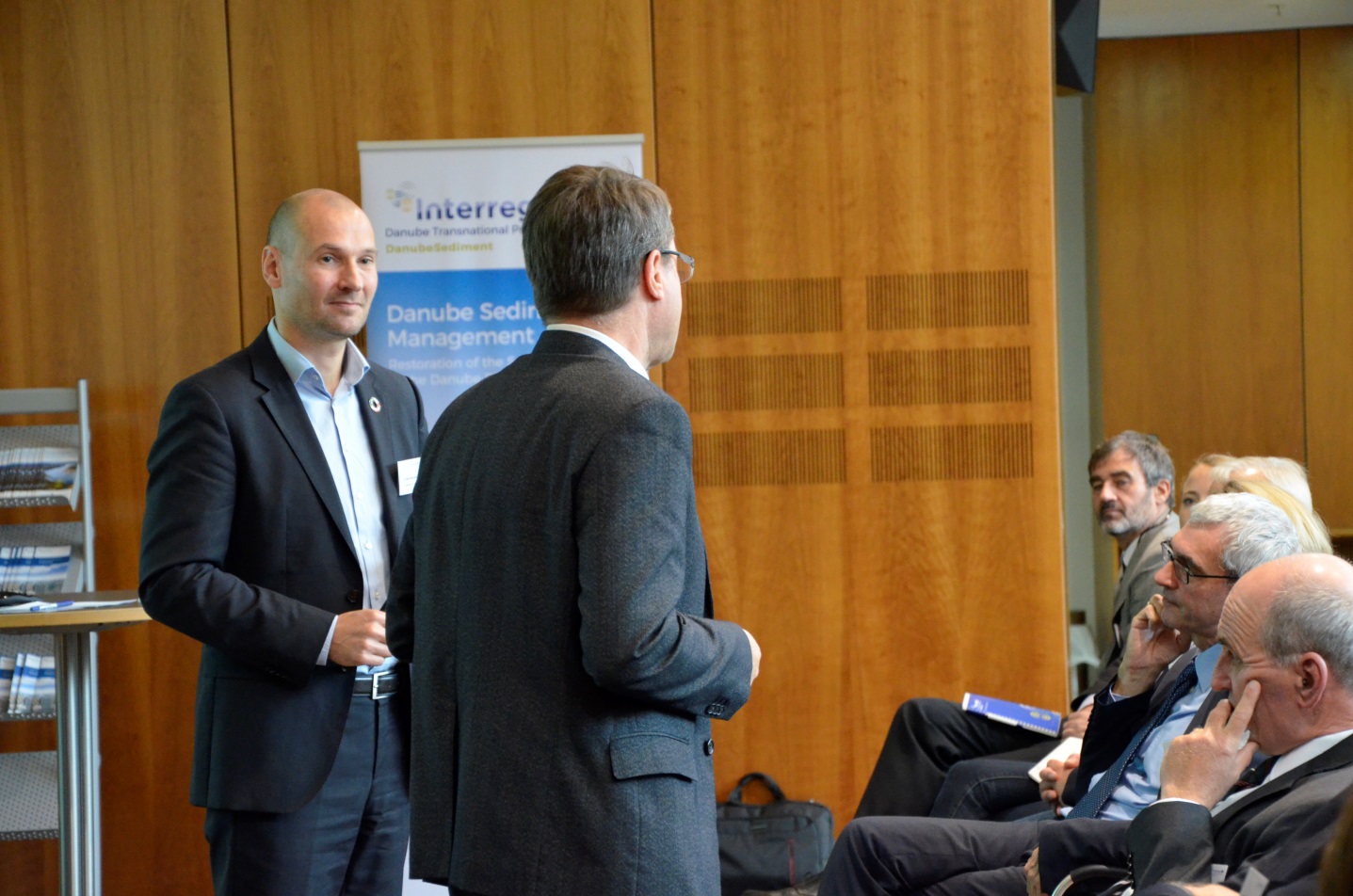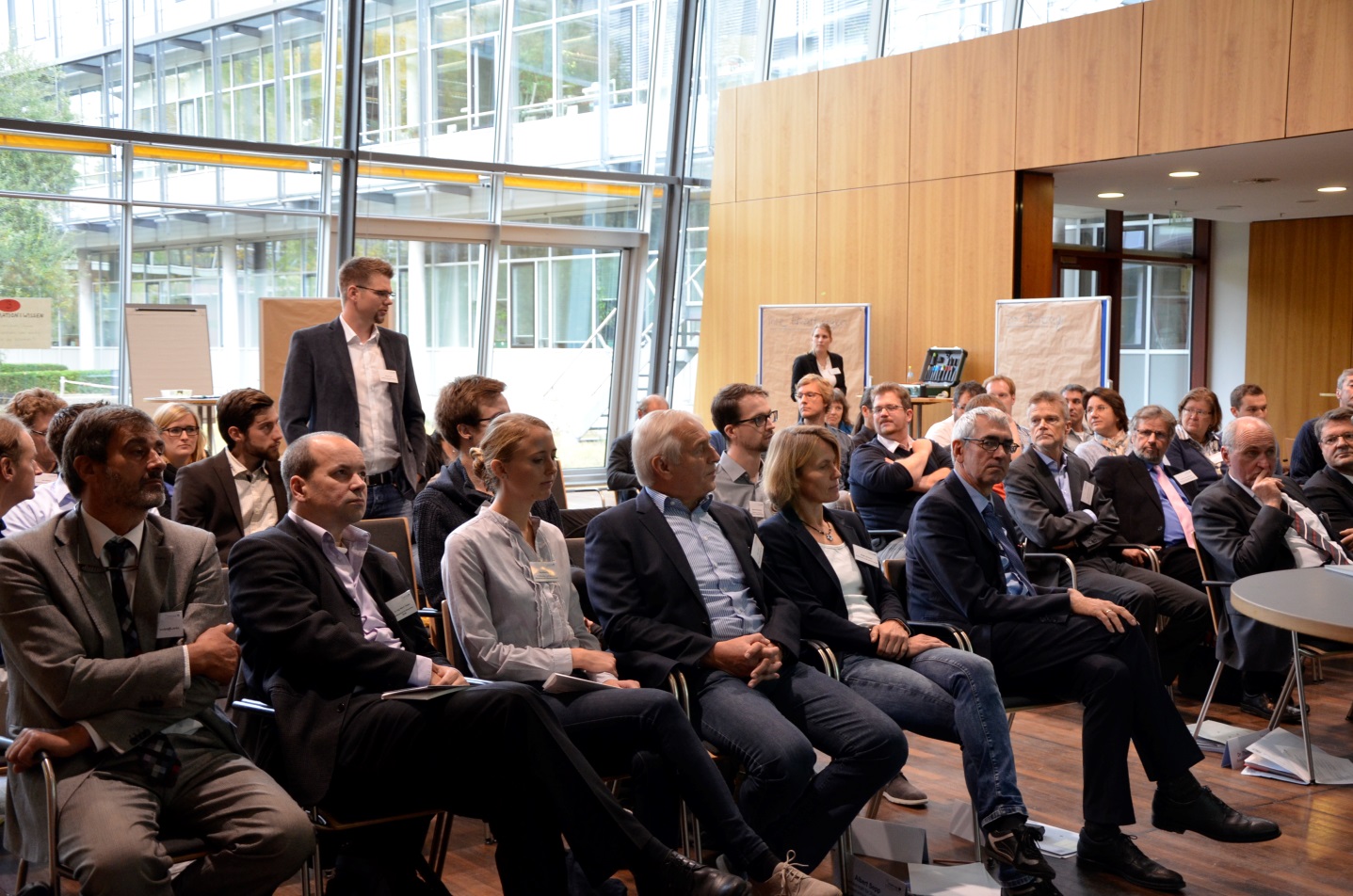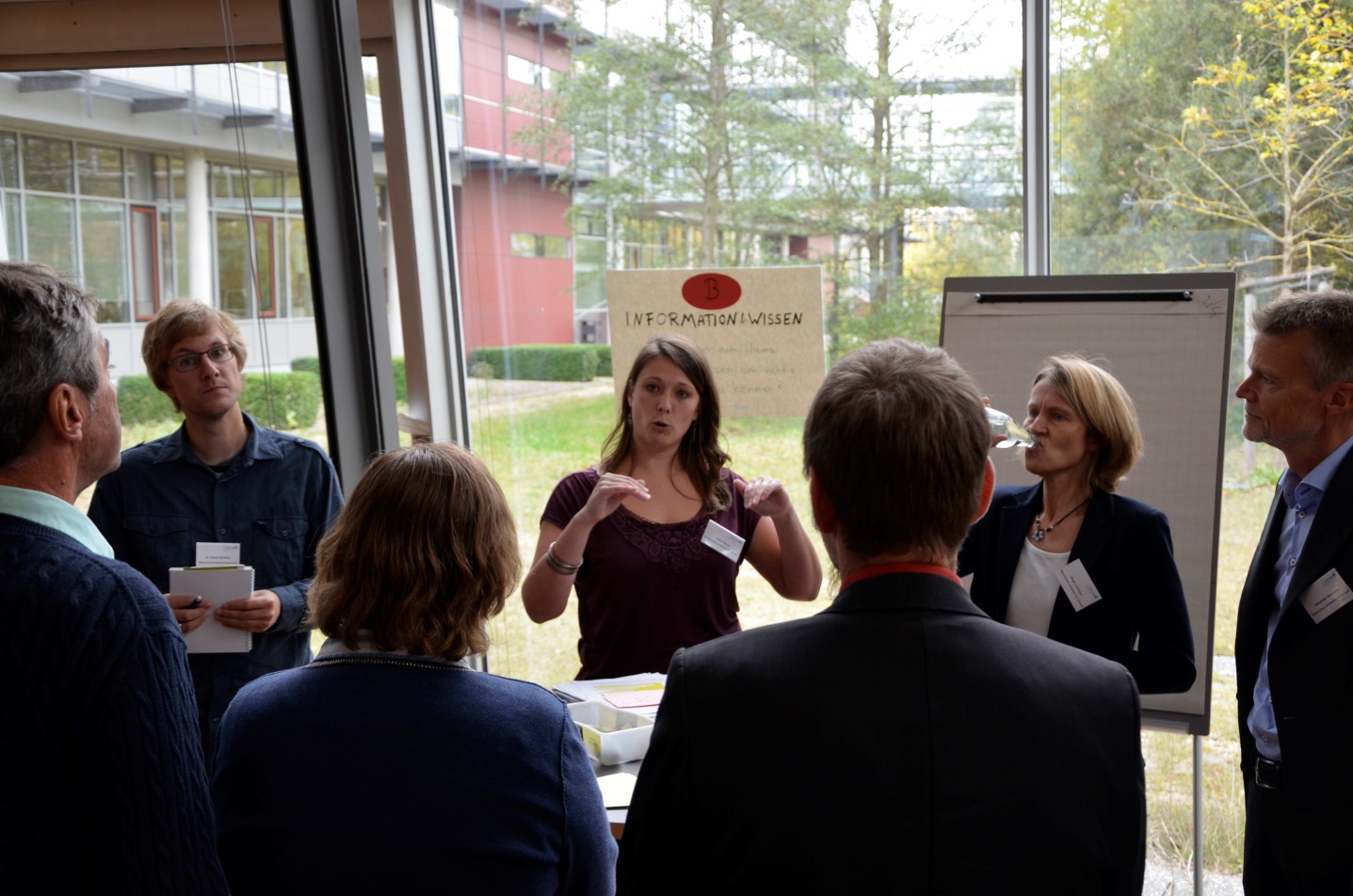DanubeSediment - Experts’ workshop addresses sediment continuity and discusses mitigation measures for the German Danube River Basin
27-10-2017

More than forty experts from the fields of research, river management authorities, environmental associations, hydropower production companies and national waterway authorities met in Augsburg on 10th October 2017 to actively participate in the first German DanubeSediment workshop for stakeholder involvement, titled “Sediment Management in the Danube – Knowledge and Action”.
The disruption of sediment transport causes problems for many sectors associated with the Danube, e.g. hydropower production, shipping, flood risk and erosion protection and biodiversity. In Germany alone, more than 300 barriers in the Danube River basin, obstructing free sediment transport. “We are aware of our responsibility for a sustainable sediment transport” states Claus Kumutat, president of the Bavarian Environment Agency (Bayerisches Landesamt für Umwelt, LfU) - together with the Technical University of Munich one of the two DanubeSediment project partners.
 Participants of the first national stakeholder workshop agreed on the fact that sediment is an important part of river management. However, within the German part of the Danube river basin, there are only very few areas that enable a dynamic, sustainable sediment continuity.
Participants of the first national stakeholder workshop agreed on the fact that sediment is an important part of river management. However, within the German part of the Danube river basin, there are only very few areas that enable a dynamic, sustainable sediment continuity.
The need to go beyond “island-solutions" was mentioned more than once. “Island solutions” are single measures applied to a spot or a stretch of a river, without considering the connection to what is happening upstream or downstream. Reasons for “island solutions” are mainly seen as a lack of knowledge of interactions, an inappropriate set of tools, a lack of awareness for processes or uncertainty about targets and the efficiency of measures.
In order to tackle this issue, the stakeholders discussed the need to set up transnationally applicable criteria for evaluating the significance pressures on sediment continuity and the interactions between sediment and other sectors, such as river structures, navigation, biodiversity, groundwater, and flood protection.
 Four parallel interactive workshops offered room to give input and identify priorities for the next steps of the project work. This workshop is a first step for setting up a national network of stakeholders in Germany and will serve as an interactive platform of expertise during the DanubeSediment project and beyond.
Four parallel interactive workshops offered room to give input and identify priorities for the next steps of the project work. This workshop is a first step for setting up a national network of stakeholders in Germany and will serve as an interactive platform of expertise during the DanubeSediment project and beyond.
Photo credits: Bavarian Environment Agency
